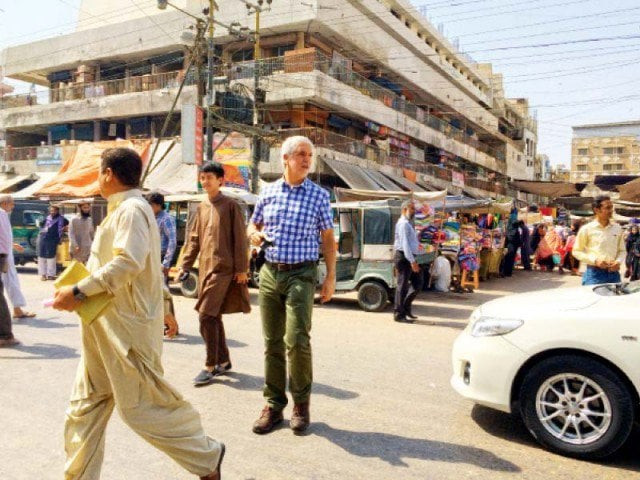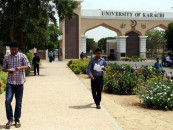Mass transit for Karachi
There are at least four large players looking to develop the BRT system and they are not all on the same page

Enrique Penalosa walks along MA Jinnah Road on Thursday. The BRTS expert is in Pakistan to garner support for the system and work with entities such as the ADB and Bahria Town who are in a race to build Karachi's first corridor. PHOTO: MAHIM MAHER/EXPRESS
There seems to be little dispute or doubt that BRT is the road to go, but how Karachi gets there is very much a matter for debate. The city has been divided into colour-coded ‘lines’ which were first set out in a plan devised by the Japanese in 2010. In principle, there is nothing wrong with this; the problem lies in the fact that there are at least four large players looking to develop the BRT system and they are not all on the same page.
Whilst there may need to be several developers, they all need to operate under a single entity that has a single corporate image, a single ticketing and pricing system and a single ‘look’ as Mr Penalosa has very rightly pointed out. This is the view of virtually every consultant who has looked into the matter, yet the city managers have yet to grasp the necessity of creating such an entity and have green-lighted a diversity of competing players who may have little vested interest in working cooperatively, or from a jointly owned playbook. There is the real prospect of this vital project falling into disarray. A lack of political competencies seems to have once again got in the way of essential development — and Karachi deserves better than this.
Published in The Express Tribune, March 24th, 2015.
Like Opinion & Editorial on Facebook, follow @ETOpEd on Twitter to receive all updates on all our daily pieces.



















COMMENTS
Comments are moderated and generally will be posted if they are on-topic and not abusive.
For more information, please see our Comments FAQ